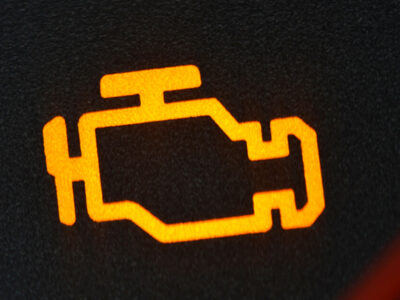
Audi A1 Dashboard Warning Lights & Symbols Guide (2010–2024)

- Introduction to Audi A1 Dashboard Indicators
- Understanding Symbol Colours
- Engine-Related Warning Symbols
- Electrical and Battery System Indicators
- Transmission, Brake, and Chassis Warnings
- Steering & Handling Indicators
- Driver Assistance & Safety Systems
- Lighting Indicators
- Body System Alerts
- Tyre & Suspension Indicators
- Comfort and Convenience Indicators
- General Alerts
- Frequently Asked Questions
- Conclusion
Introduction to Audi A1 Dashboard Indicators
When an Audi A1 illuminates a dashboard symbol, it is your car’s way of communicating its status, health, and operational conditions. Across the 2010 to 2024 Audi A1 generations—including 8X and GB—drivers encounter more than 25 dashboard symbols spanning safety systems, engine management, driver assistance, comfort features, and maintenance alerts.
In this definitive guide, we walk through every warning light and indicator your Audi A1 may display, explain what each symbol means, outline the potential causes, and detail the recommended actions to take. Our objective is simple: to provide the most complete and understandable resource available for Audi A1 owners.
Understanding Symbol Colours
Dashboard symbol colour is just as important as the symbol itself. Audi uses a colour-coded logic that mirrors universal automotive standards:
Green or Blue Indicators
- Informational only
- Systems active or switched on
- No action required
Yellow or Amber Warnings
- Non-urgent issues
- Mild faults or secondary safety systems engaged
- Service or inspection may be required soon
Red Warnings
- Critical, urgent, potential hazard
- Immediate attention required
- Stop driving if safe to do so and seek assistance
Engine Fault / Check Engine Light
This symbol signals that the on-board diagnostics (OBD) system detected an engine or emissions irregularity. Possible triggers include:
- Loose fuel cap
- Misfires or blocked cylinders
- Faulty sensors (MAF, O2, crankshaft)
- Poor fuel mixture
- Excess vibration
- Catalytic converter issues
- Gearbox-related faults
Recommended action: Avoid hard acceleration, check the fuel cap first, and book a diagnostic scan.
Engine Oil Pressure / Low Engine Oil
A critical warning indicating insufficient oil pressure or dangerously low oil levels. Running the engine can cause severe or irreversible damage.
Common causes:
- Oil leak
- Oil pump failure
- Incorrect oil level
- Blocked oil passages
Recommended action: Stop immediately, check oil level, and avoid driving until inspected.
High Engine Coolant Temperature
This symbol shows engine overheating.
Typical causes:
- Low coolant
- Radiator leak
- Thermostat failure
- Water pump malfunction
- Blocked coolant system
Recommended action: Stop the engine, allow it to cool, and seek professional inspection quickly.
Glow Plug Indicator (Diesel Models Only)
This appears only on diesel Audi A1 variants.
- Green: System heating the cylinders correctly
- Yellow/Flashing: Glow plug, relay, or sensor failure
Recommended action: If flashing or yellow, a diagnostic scan is recommended.
Electrical and Battery System Indicators
Battery Charge / Low Voltage Warning
Indicates the battery is not charging or voltage is insufficient.
Common causes:
- Failing battery
- Faulty alternator
- Corroded terminals
- Damaged charging cable
Recommended action: Avoid long-distance driving until tested. Loss of power may occur.
Automatic Lights Malfunction
Shows a failure in the ambient or low-light sensor controlling automatic headlights.
Causes include:
- Sensor failure
- Wiring issues
- Software faults
Recommended action: Use manual lighting until repaired.
Bulb Failure Warning
Triggered when a headlight, taillight, brake light, or indicator bulb stops functioning.
Recommended action: Replace the failed bulb or check fuses.
Transmission, Brake, and Chassis Warnings
ABS System Fault
Indicates the Anti-lock Braking System is compromised.
Possible causes:
You may be interested in reading Best Audi A1 & S1 Oil Types, Grades, Capacities, and Service Intervals (Complete Expert Guide)
Best Audi A1 & S1 Oil Types, Grades, Capacities, and Service Intervals (Complete Expert Guide)- ABS sensor failure
- Damaged tone ring
- Control module issues
Recommended action: Braking performance may be affected—seek inspection.
ESC / ESP Active or Fault
Electronic Stability Control engages on slippery surfaces. If flashing constantly or showing solid yellow, it may indicate:
- Wheel speed sensor problems
- Steering angle sensor issue
- Brake pressure faults
Recommended action: Drive carefully and have the system diagnosed if the light stays solid.
Brake Fluid Warning
Triggered when brake fluid level is low or there is a sensor malfunction.
Common reasons:
- Brake fluid leak
- Worn brake pads
- Master cylinder issue
Recommended action: Urgent inspection required. Braking power may be reduced.
Brake Pad Wear Indicator
Signals brake pads have worn down to their minimum safe thickness.
Recommended action: Replace pads as soon as possible.
Handbrake Engaged
Illuminates while the handbrake is set.
If illuminated while driving:
Possible low brake fluid or parking brake malfunction.
Steering & Handling Indicators
Steering Wheel Locked
This anti-theft warning flashes when the steering lock is engaged.
If it illuminates while attempting to start the car, gently turn the steering wheel while turning the key or pressing start.
Check Wheel Warning
Refers to wheel-related issues, not tyre inflation. Common causes include:
- Misalignment
- Wheel imbalance
- Steering component wear
Driver Assistance & Safety Systems
Airbag / SRS Fault
Indicates that one or more airbags may not deploy in a collision.
Typical causes:
- Seat occupancy sensor failure
- Clock spring defect
- Module error
Recommended action: Immediate inspection recommended.
Lane Assist Activated
Lane-keeping assistance is active. It typically engages above 40 km/h (25 mph).
Front Radar / Autonomous Braking Active
Indicates that the frontal radar responsible for adaptive cruise control and AEB is engaged or detecting objects.
If showing a fault:
- Sensor obstruction
- Calibration required
- Wiring or software issues
Cruise Control Ready
The system is armed and awaiting activation via the set button.
Parking Sensors Active
Displays when front or rear parking sensors detect an obstacle, accompanied by an audible alert.
Lighting Indicators
Low Beam Headlights On
Shows that standard headlights are active.
High Beam Headlights On
Indicates high-beam headlights are active.
You may be interested in reading Best Audi A1 & S1 Oil Types, Grades, Capacities, and Service Intervals (Complete Expert Guide)
Best Audi A1 & S1 Oil Types, Grades, Capacities, and Service Intervals (Complete Expert Guide) How to Reset TPMS on Audi A1: Complete Step-by-Step Guide for All Models
How to Reset TPMS on Audi A1: Complete Step-by-Step Guide for All ModelsAutomatic Low Beam / High Beam Indicators
These symbols show that automatic headlight systems are operating.
If malfunctioning:
- Light sensor failure
- Windshield obstruction
- Software error
Front Fog Lights On / Rear Fog Lights On
Indicates fog lamps are active.
Fog lights must only be used in appropriate conditions according to local law.
Body System Alerts
Bonnet / Hood Open
Indicates the front hood is not fully latched.
Boot / Trunk Open
Signals the rear boot is open or the latch sensor has detected improper closure.
Doors Open
Appears when any door is ajar.
Tyre & Suspension Indicators
Tyre Pressure Monitoring System (TPMS) Fault
Triggered when tyre pressure is low or a sensor error occurs.
Possible reasons:
- Puncture
- Incorrect pressure
- Dead TPMS sensor battery
Recommended action: Inflate tyres to correct PSI and recalibrate the system.
Air Suspension Fault (If Equipped)
Not common on all trims, but available in some markets.
Causes:
- Air leak in suspension bags
- Faulty compressor
- Pressure line failure
Comfort and Convenience Indicators
Heated Seats On
Shows heated seats are activated. Vertical bars reflect heat intensity levels.
Heated Windscreen Active
Indicates that the windscreen heating elements are functioning to remove frost or fog.
Intermediate / Automatic Wipers Active
Shows rain-sensing wipers are operating.
General Alerts
Service Due Soon
This is a maintenance reminder tied to mileage or time intervals.
Press Foot Brake Indicator
Common in automatic Audi A1 models—prompts driver to press the brake pedal before shifting out of Park.
Attention / General Warning Symbol
A multifunction symbol indicating:
- Minor fault detected
- Another warning light requires your attention
- Handbrake may be engaged
Frequently Asked Questions
1. Can I still drive my Audi A1 with a yellow warning light?
Generally yes, but it should be inspected soon.
2. What is the most serious Audi A1 warning light?
Red engine oil pressure or red coolant temperature—both require immediate shutdown.
3. Why does my check engine light come on randomly?
It is often triggered by a loose fuel cap or a faulty sensor.
4. Do warning lights reset automatically?
Some do after resolving the issue; others require a diagnostic reset.
5. Can TPMS lights come on due to weather?
Yes, cold temperatures lower tyre pressure and can trigger the light.
Conclusion
Audi A1 dashboard warning lights are essential communication tools that help you maintain safety, performance, and longevity. Understanding each symbol empowers owners to respond effectively, avoid breakdowns, and minimise repair costs. With this comprehensive guide, Audi A1 drivers from 2010 to 2024 can confidently identify, interpret, and act upon any warning that appears on the dashboard.
You may be interested in reading Best Audi A1 & S1 Oil Types, Grades, Capacities, and Service Intervals (Complete Expert Guide)
Best Audi A1 & S1 Oil Types, Grades, Capacities, and Service Intervals (Complete Expert Guide) How to Reset TPMS on Audi A1: Complete Step-by-Step Guide for All Models
How to Reset TPMS on Audi A1: Complete Step-by-Step Guide for All Models Audi A1 Tyre Size: The Complete, No-Nonsense Guide for Every Generation
Audi A1 Tyre Size: The Complete, No-Nonsense Guide for Every GenerationIf you want to know other articles similar to Audi A1 Dashboard Warning Lights & Symbols Guide (2010–2024) you can visit the category Service and Parts.
Leave a Reply






More content of your interest